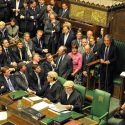Guides
Acts of ParliamentDevolved GovernmentHouse of CommonsHouse of LordsLegislative ProcessWhitehallPolitical PartiesThe Political Process Display All
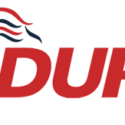
Democratic Unionist Party
The Democratic Unionist Party is now the leading unionist party, and the largest party in the Northern Ireland Assembly. The DUP was founded in 1971 by the Reverend Ian Paisley, a preacher at the Free Presbyterian Church of Ulster. It is currently led by Jeffrey Donaldson.Read More
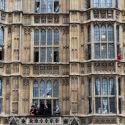
Draft Bill
A draft Bill is a preliminary form of a Bill. It may contain all or only parts of the Bill the Government wishes to introduce.Read More
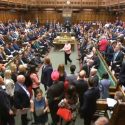
Early Day Motions
Early Day Motions (universally known in Parliament as 'EDMs') are best thought of as petitions put forward by MPs on specific subjects. Other MPs are then invited to add their names in support.Read More

Election Debates
Election debates capture the controlled interactions of Britain's foremost politicians. They excite the political class, more than the public as a whole. In 2017, 'Britain's Got Talent' (BGT) out-competed the BBC's 2017 political debate, winning by 8.5 million viewers to 3.5 million.Read More
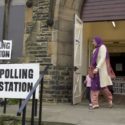
Election Polls
A consideration of why opinion polls often get it wrong, and as to whether they publication of election polls should be banned in the period running up to polling day.Read More
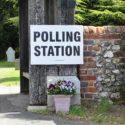
Election Turnout
Despite talk of a 'youthquake', UK voter turnout in 2019 was only 47% amongst those aged 18-24 compared to 74% amongst those aged over 65. Whilst in Bolivia, non voters can be denied from withdrawing their salary from the bank for three months.Read More

Elections and voting
An overview on the process governing elections to the House of Commons. Who can vote, who can stand for election, how much can candidates spend, and what are the rules around televised election broadcasts.Read More

Elections to the House of Commons
An overview of how Members of Parliament are elected, how elections and by-elections are called, and how the constituency system works.Read More
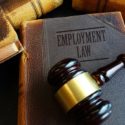
Employment Rights Act 1996
The 1996 Employment Rights Act is the dominant piece of legislation that lays out the rights of workers in the United Kingdom. Read More

Equality Act 2010
The 2010 Equality Act unites a range of anti-discrimination legislation and compounds it into a single, comprehensive law. It is the dominant piece of equality legislation in the United Kingdom. Read More
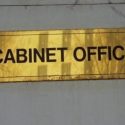
Executive Agencies
Executive Agencies now account for the majority of civil servants employed. Ministers set targets for Executive agencies, whose spending appears on the balance sheet of the sponsoring government department.Read More
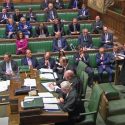
First Reading
The introduction (also known as the presentation or bringing in) of a Bill into the House of Commons takes the form of its formal First Reading. There is no debate at this stage. Read More

Freedom of Information Act
Under the FOI Act, a public authority is required to make certain information available. The Act was intended to increase transparency and improve public trust. Rather ironically, the most famous Freedom of Information request, is the one that led to the 2009 MPs' expenses scandal.Read More

Government Bills
Government Bills are Public Bills that are introduced by Government Ministers.Read More

Government Spending
Government spending is controlled by the Treasury, which must account for all expenditure by departments. The Comprehensive Spending Review sets a Departmental Expenditure Limit, which is the department's budget going forward.Read More

Green Papers
Green Papers are consultative papers on the options that the Government has determined are available to it in a certain policy area, sometimes including suggestions for legislation.Read More

Green Party
The Green Party is a left of centre political party with a specific focus on environmentalism. In the 2019 General Election, the Green Party polled 2.7% of the popular vote. However at 48,500, the Green Party's membership is a quarter of that of the Conservatives and half that of the Lib Dems.Read More

Health and Safety at Work Act
The 1974 Health and Safety at Work Act introduced a legal responsibility for employers to protect the health and safety of all those who work or visit them. In 2018 there were 147 fatal injuries in the workplace, compared with 651 in 1974. Similarly, non-fatal accidents are now 21% of the 1974 figure.Read More

